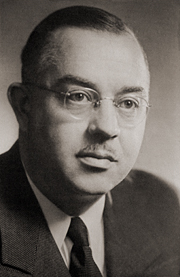A Quote by Thomas Carlyle
Know what thou canst work at, and work at it like a Hercules.
Related Quotes
Have I then no work to work in this great matter of my pardon? None. What work canst thou work? What work of thine can buy forgiveness or make thee fit for the Divine favour? What work has God bidden thee work in order to obtain salvation? None. His Word is very plain and easy to be understood, "To him that worketh not, but believeth in Him that justifieth the ungodly, his faith is counted for righteousness" (Rom. 4:5). There is but one work by which a man can be saved. That work is not thine, but the work of the Son of God. That work is finished.
I am ever Thine. If Thou cast me out, who shall take me in? If Thou disregard me, who shall look on me? More canst Thou remit, than I commit; more canst Thou spare, than I offend. Let not hurtful pleasures overcome me; at the least let not any perverse habit overwhelm me; From evil and unlawful desires; From vain, hurtful, impure imaginations; from the illusions of evil spirits; from pollutions of soul and of body; Good Lord, deliver me.
It seems that wherever the Welfare State is involved, the moral precept, "Thou shalt not steal," becomes altered to say: "Thou shalt not steal, except for what thou deemest to be a worthy cause, where thou thinkest that thou canst use the loot for a better purpose than wouldst the victim of the theft."
Heard melodies are sweet, but those unheard Are sweeter: therefore, ye soft pipes, play on; Not to the sensual ear, but, more endear'd, Pipe to the spirit ditties of no tone. Fair youth, beneath the trees, thou canst not leave Thy song, nor ever can those trees be bare; Bold Lover, never, never canst thou kiss, Though winning near the goal yet, do not grieve; She cannot fade, though thou hast not thy bliss, For ever wilt thou love, and she be fair!




































